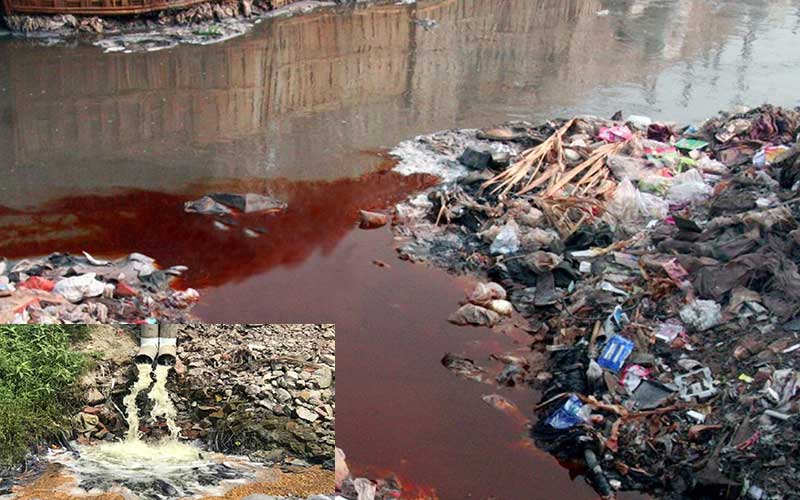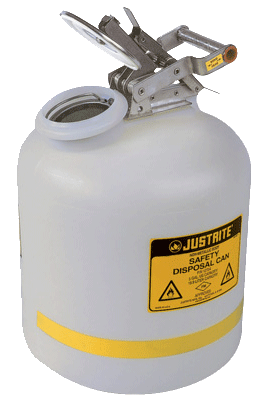Expert Liquid Waste Removal Melbourne: Fast and Budget Friendly Solutions
Expert Liquid Waste Removal Melbourne: Fast and Budget Friendly Solutions
Blog Article
Understanding the Comprehensive Process of Fluid Garbage Disposal: Ideal Practices and Environmental Influence Considerations
The monitoring of fluid waste disposal is a multifaceted issue that needs a detailed understanding of various best methods and their linked ecological effects. From the kinds of liquid waste generated to the approaches utilized for collection, therapy, and last disposal, each step plays an important role in securing environments and public wellness.
Kinds Of Fluid Waste
Recognizing the different types of fluid waste is necessary for reliable monitoring and disposal methods. Liquid waste can be extensively classified into numerous types, each needing one-of-a-kind handling and treatment techniques.
Industrial fluid waste usually consists of hazardous products, consisting of heavy steels, solvents, and chemicals, created during manufacturing processes. These wastes require strict regulatory compliance to safeguard human health and wellness and the setting. Residential fluid waste mainly refers to wastewater produced from homes, consisting of sewer and greywater, which, although less poisonous, can still pose considerable dangers if poorly handled.
Agricultural fluid waste, consisting of runoff from farms, frequently includes plant foods and pesticides that can bring about environmental deterioration if not treated effectively. Medical liquid waste, generated from healthcare facilities, includes polluted liquids such as physical fluids and chemicals, needing specialized disposal techniques to prevent infection and environmental contamination.
Last but not least, oil and grease waste, normally produced by restaurants and auto markets, can cause serious blockages in sewer systems if not handled appropriately. Comprehending these groups assists in targeted strategies for therapy, conformity with guidelines, and reliable disposal approaches, ultimately advertising ecological sustainability and public health and wellness safety and security.

Collection Techniques
Efficient collection approaches are vital for the correct administration of fluid waste, making sure that it is collected safely and effectively before treatment or disposal. Various strategies are employed depending on the kind of fluid waste produced, the volume, and the specific features of the waste.
One common approach is the use of committed collection tanks or sumps, which are developed to catch fluid waste at the resource. These systems usually include pumps that assist in the transfer of waste to bigger storage space containers or therapy centers. In addition, mobile collection units equipped with vacuum cleaner modern technology are used in circumstances where waste is created periodically or in hard-to-reach locations.
For commercial setups, closed-loop systems can successfully minimize spills and leaks, enabling the recuperation and reuse of fluid waste. It is likewise essential to educate personnel on appropriate collection procedures to alleviate threats associated with harmful materials.
In addition, implementing normal upkeep timetables for collection equipment guarantees optimal performance and safety. The integration of innovative monitoring systems can boost collection efficiency by providing real-time data on waste levels and potential dangers. Overall, reliable collection techniques are fundamental to lasting liquid waste management methods.
Therapy Processes
Treatment procedures play an important role in the management of liquid waste, changing potentially hazardous products right into safe effluents or reusable sources - liquid waste disposal. These processes can be broadly classified right into physical, chemical, and biological techniques, each tailored to deal with particular pollutants present in the waste stream
Physical therapy methods, such as sedimentation and purification, job by eliminating put on hold solids and particulate issue. These methods are frequently the very first step in the treatment chain, properly minimizing the lots on subsequent procedures. Chemical therapies include using reagents to counteract harmful compounds, speed up heavy metals, or oxidize organic toxins, therefore enhancing the safety of the effluent.
Organic treatment processes, including activated sludge systems and anaerobic digestion, maximize the all-natural capabilities of bacteria to deteriorate raw material. These methods are especially reliable for wastewater containing biodegradable contaminants. Advanced treatment technologies, such as membrane layer filtration and advanced oxidation processes, are increasingly employed to attain greater levels of filtration.
Incorporating a combination of these therapy approaches not just makes sure conformity with regulatory criteria however also advertises ecological sustainability by recuperating beneficial sources from liquid waste.
Disposal Options
Just how can companies ensure the responsible and safe disposal of liquid waste? Efficient disposal options are crucial for protecting public health and wellness and the environment. The main approaches include land disposal, incineration, and treatment adhered to by discharge into municipal wastewater systems.
Land disposal entails the mindful control of fluid waste in marked garbage dumps, ensuring that it does not leach into surrounding soil or water. Incineration, on the various other hand, subjects fluid waste to heats, transforming it into ash and gases, which call for correct filtering to reduce emissions. This approach appropriates for contaminateds materials that can not be check that dealt with with traditional means.
In situations where fluid waste can be treated, companies might go with chemical or biological treatment processes to neutralize hazardous components prior to discharging the treated effluent right into community systems. This course typically lines up with regulative requirements, ensuring that the effluent meets safety and security requirements.
Eventually, companies must conduct thorough assessments of each disposal alternative to identify its stability, taking into consideration variables such as waste structure, you could check here regulatory compliance, and prospective threats to health and wellness and the atmosphere. By picking ideal disposal approaches, services can add to a responsible waste management approach.
Environmental Impact
The environmental effect of fluid waste disposal is a vital consideration for organizations looking for to lessen their eco-friendly footprint. Furthermore, the discharge of neglected or improperly treated waste into surface area waters can result in eutrophication, leading to oxygen deficiency and the succeeding fatality of fish and other organisms.

To alleviate these impacts, companies have to embrace finest techniques such as implementing strenuous waste therapy processes, promoting recycling and reuse, and adhering to governing requirements. By taking a proactive method to fluid waste administration, entities can considerably lower their environmental footprint while sustaining lasting growth objectives. Eventually, an extensive understanding of the ecological impacts related to fluid garbage disposal is essential for educated decision-making and responsible stewardship of natural sources.
Verdict
Reliable monitoring of liquid waste is critical for protecting ecological integrity and public health and wellness. By taking on finest techniques in therapy, disposal, and collection, along with adherence to regulative criteria, the potential for dangerous contamination of ecosystems can be dramatically minimized. Constant developments in innovation and processes add to lasting waste administration efforts. Eventually, a thorough understanding of fluid garbage disposal not only mitigates environmental influences but additionally cultivates a commitment to liable source his response administration and environmental stewardship.
The monitoring of fluid waste disposal is a diverse concern that requires a complete understanding of different best methods and their connected ecological effects. From the kinds of liquid waste generated to the techniques utilized for collection, therapy, and last disposal, each step plays an important duty in guarding ecosystems and public health.The ecological influence of fluid waste disposal is an essential factor to consider for companies seeking to minimize their ecological footprint. Ultimately, an extensive understanding of the ecological influences connected with fluid waste disposal is necessary for notified decision-making and liable stewardship of all-natural sources.
Inevitably, a detailed understanding of liquid waste disposal not just mitigates environmental impacts however likewise fosters a commitment to liable resource management and environmental stewardship.
Report this page